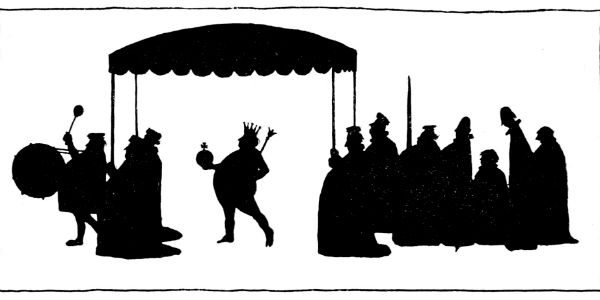We have an epidemic of nakedness in America.
All sorts of emperors are strutting about with their whatevers hanging out, and most of the media — and a large segment of the population — is too afraid to point out the obvious. Political correctness has evolved from courtesy to tyranny, in which insupportable and impossible things are asserted every day, and too many either avert their eyes or go along just to get along.
But every now and then, something strips away the illusions and lays the truth bare — something like the Planned Parenthood videos, for instance (and there’s a new one out today). That particular emperor is revealed to not only be naked, but to be willing to strip others of their humanity as well.
From Hot Air:
The Center for Medical Progress has a new video out this morning, and this one focuses on issues of consent. Holly O’Donnell, a former StemExpress procurement technician, discusses the industrial process of abortions and the lack of care shown to the patients. More problematic for Planned Parenthood, O’Donnell explains that she has witnessed clinics not getting consent before harvesting blood and organs, despite the organization’s insistence that women are fully informed before procuring human organs and tissues from their abortions.
Click here to read the whole thing and see the video.
So, in the public interest, here’s the most important fable of our time, by Hans Christian Anderson, which ends with the guileless courage of a child who hasn’t been trained out of calling it as it is.
The Emperor’s New Clothes
Many years ago, there was an Emperor, who was so excessively fond of new clothes, that he spent all his money in dress. He did not trouble himself in the least about his soldiers; nor did he care to go either to the theatre or the chase, except for the opportunities then afforded him for displaying his new clothes. He had a different suit for each hour of the day; and as of any other king or emperor, one is accustomed to say, “he is sitting in council,” it was always said of him, “The Emperor is sitting in his wardrobe.”
Time passed merrily in the large town which was his capital; strangers arrived every day at the court. One day, two rogues, calling themselves weavers, made their appearance. They gave out that they knew how to weave stuffs of the most beautiful colors and elaborate patterns, the clothes manufactured from which should have the wonderful property of remaining invisible to everyone who was unfit for the office he held, or who was extraordinarily simple in character.
“These must, indeed, be splendid clothes!” thought the Emperor. “Had I such a suit, I might at once find out what men in my realms are unfit for their office, and also be able to distinguish the wise from the foolish! This stuff must be woven for me immediately.” And he caused large sums of money to be given to both the weavers in order that they might begin their work directly.
So the two pretended weavers set up two looms, and affected to work very busily, though in reality they did nothing at all. They asked for the most delicate silk and the purest gold thread; put both into their own knapsacks; and then continued their pretended work at the empty looms until late at night.
“I should like to know how the weavers are getting on with my cloth,” said the Emperor to himself, after some little time had elapsed; he was, however, rather embarrassed, when he remembered that a simpleton, or one unfit for his office, would be unable to see the manufacture. To be sure, he thought he had nothing to risk in his own person; but yet, he would prefer sending somebody else, to bring him intelligence about the weavers, and their work, before he troubled himself in the affair. All the people throughout the city had heard of the wonderful property the cloth was to possess; and all were anxious to learn how wise, or how ignorant, their neighbors might prove to be.
“I will send my faithful old minister to the weavers,” said the Emperor at last, after some deliberation, “he will be best able to see how the cloth looks; for he is a man of sense, and no one can be more suitable for his office than be is.”
So the faithful old minister went into the hall, where the knaves were working with all their might, at their empty looms. “What can be the meaning of this?” thought the old man, opening his eyes very wide. “I cannot discover the least bit of thread on the looms.” However, he did not express his thoughts aloud.
Story continues on the next page:













